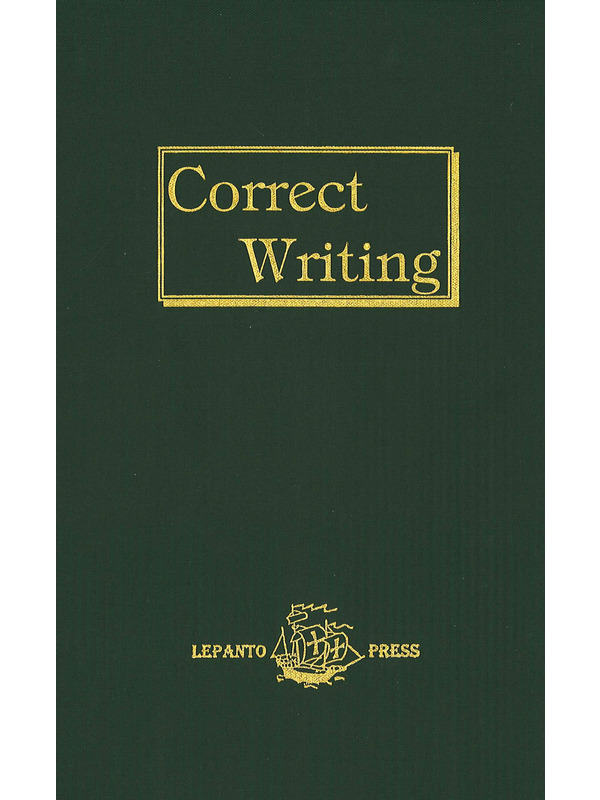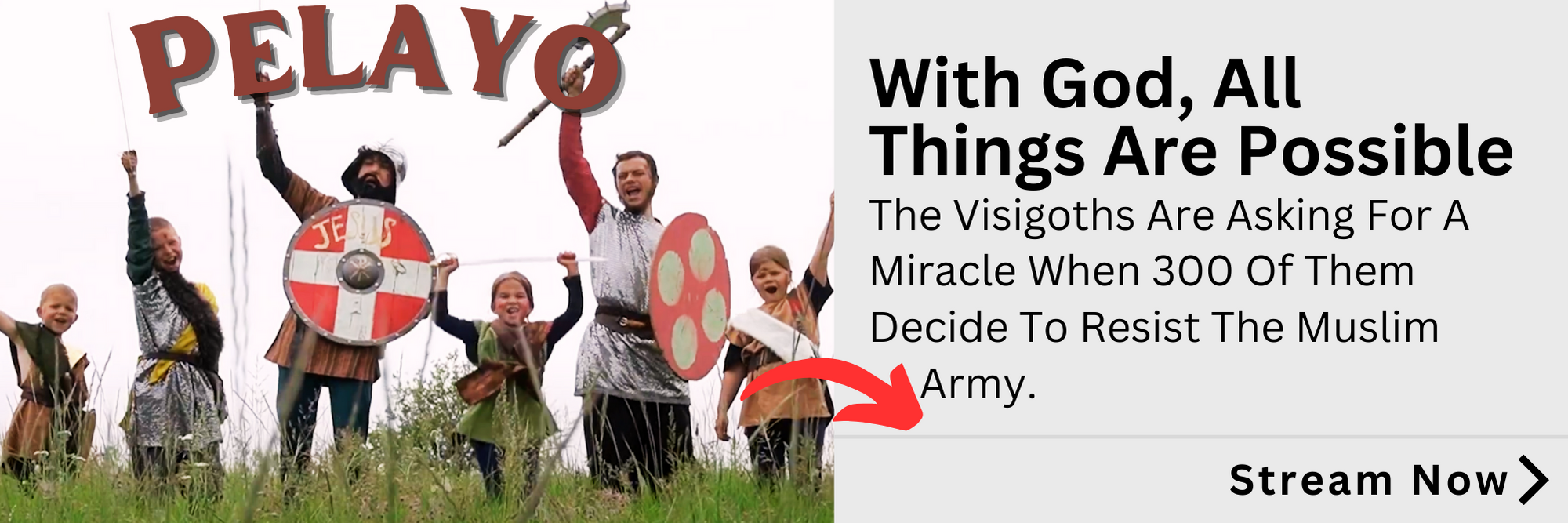Don't miss your chance to invest in 'Fabiola'!
Visit our crowd-funding page to help make Catholic movies!
- Home
- Adjective Definition And Examples
Having A Tough Time Understanding Adjectives? Here Is An Adjective Definition And Examples For You To Try!
Adjectives are the flavor in a sentence. An adjective gives a noun life. Read the following adjective definition and examples.
The Definition Of An Adjective
An adjective is a word that modifies a noun or a pronoun.
An adjective is the part of speech that describes or limits a noun or pronoun.
Words that modify nouns and pronouns are adjectives. Phrases that modify nouns and pronouns are adjective phrases. Clauses that modify nouns and pronouns are called adjective clauses.
The most easy to recognize adjectives are descriptive. Here are some examples of descriptive adjectives:
low table
little feet
carved soldiers
hostile troops
brilliant strategy
If you ask the question "what kind of table?" and are able to answer with a descriptive word (in this case low), that word is the adjective.
What kind of feet? Little.
What kind of soldiers? Carved.
What kind of troops? Hostile.
What kind of strategy? Brilliant.
1. Afraid Of Limiting Adjectives? Here Is A Special Adjective Definition And Examples To Aid In Understanding How Numbers And Articles Can Describe And Limit Nouns
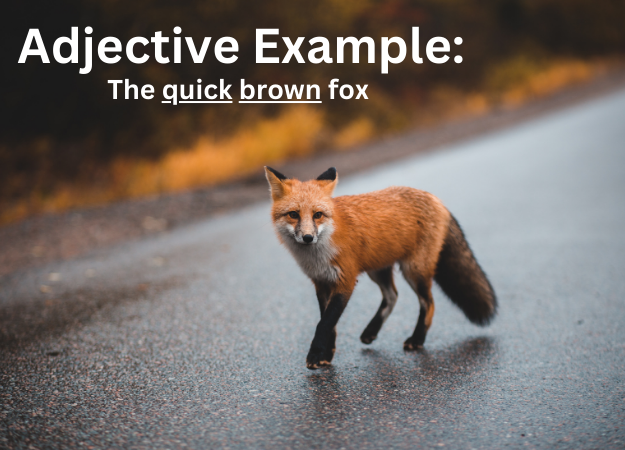
Below is the definition of a limiting adjective followed by examples.
When numbers are used to limit nouns in sentences, they are also adjectives because they are describing a limitation. The articles a, an and the are also limiting adjectives.
Pronominal adjectives are subdivided into 4 categories.
1. Demonstrative: This, that, these, those
2. Possessive: My, your, his, her, its, our, their, whose
3. Interrogative: Which, what, whose
4. Indefinite: Another, each, either, every, much, neither, both, few, many, several, all, any, enough, no, more, most, other, some
Here are some examples of limiting adjectives:
a table
two feet
the soldiers
many troops
his strategy
There are 3 kinds of limiting adjectives:
1. Numeral
2. Articles
3. Pronominal
Just like descriptive adjectives, you can ask a question and if you are able to answer with a word, that word is the adjective.
How many feet? Two.
What soldiers? The.
How many troops? Many.
Whose strategy? His.
"A man's character may be learned from the adjectives which he habitually uses in conversation."
-Mark Twain
2. Taking Adjectives To The Next Level With Adjective Phrases And Adjective Clauses
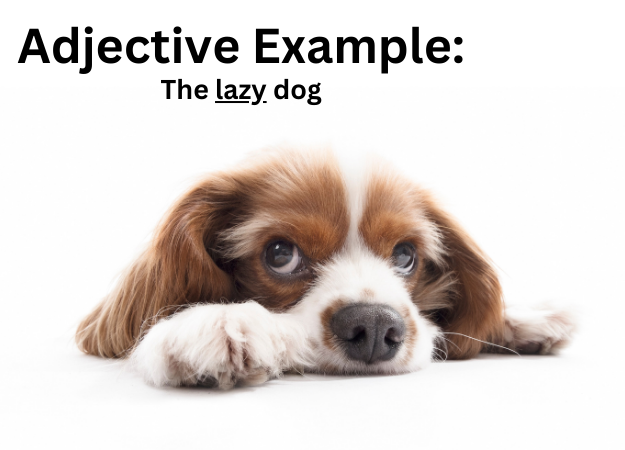
Adjective phrases are phrases that describe a noun. These phrases do not contain a verb and are usually introduced by a preposition: of, to, with, between.
two groups of tiny carved wooden soldiers
the man with the large hands
Sometimes, entire clauses can modify a noun or a pronoun. These are called adjective clauses.
Adjective clauses are generally introduced by a word like where, which, that, whose and usually contains a verb: stood, were committed.
on the table that stood on delicate little feet in front of him
he reached the point where the two forces were committed to decisive battle.
3. Grammar Video Lesson: Dreaming vs Doing
Sultan Suliman Dreams Of A Swift Victory While His Active Enemy Has Made An Advantageous Move
Read the paragraph below. We have italicized the adjective clauses for easy selection.
The Sultan Suliman sat cross-legged on a cushion in his tent, a map spread out on the low table that stood on delicate little feet in front of him. On this map he maneuvered two armies, his own and his enemy's, represented by two groups of carved soldiers.
With grave concentration he studied the positions of the enemy and deployed the hostile troops as he imagined his rival general would--conceding him every advantage and giving him credit for brilliant strategy. Then, shifting his attention to his own little wooden army, he put it through tactics that would check his enemy's latest move.
At the end of an hour's silent work, he reached the point where the two forces were committed to decisive battle. He sat back and studied the relationship between the armies. A slow smile started at the corners of his mouth.
"I believe that does it; I've checked him," he murmured. "He can't do a thing. I've got him!" And the sultan threw back his head to laugh. But the laugh never came. For his eyes, swinging up, fell upon the opening of the tent, where stood his enemy in the flesh, a great curved smile upon his lips and a great curved scimitar in his hands.
"Dreaming Versus Doing" is available to watch now on Industrious Family Theater.
Adjectives Everywhere Around The Sultan Suliman!
There are so many places where adjectives add flavor to this story! Besides the italicized adjective clauses, there are several descriptive adjectives, a handful of limiting adjectives and a few adjective phrases. Can you find them?
I hope that the adjective definition and examples were helpful in your understanding of adjectives!
As an added bonus, we diagramed one of the sentences from the story above to demonstrate what adjective phrases and clauses more clearly.
Diagram: At the end of an hour's silent work he reached the point where the two forces were committed to decisive battle.
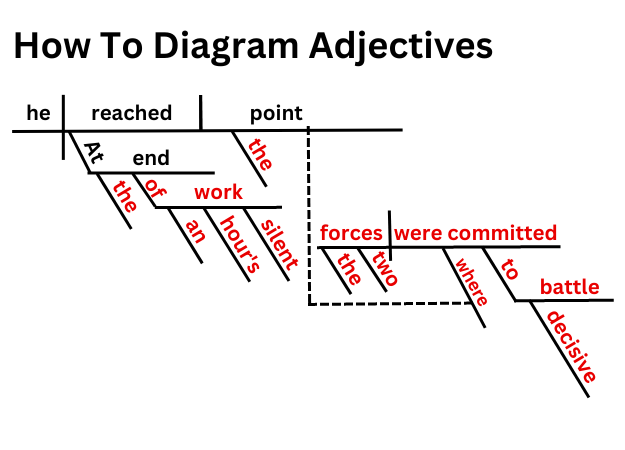 The clause where the forces were committed is an adjective clause. The phrase to decisive battle is an adjective phrase.
The clause where the forces were committed is an adjective clause. The phrase to decisive battle is an adjective phrase.Subscribe To Our FREE Email Newsletter:
Our Mission
We believe storytelling has the power to shape souls. In a world where mainstream media often undermines faith and virtue, we are dedicated to reclaiming the art of filmmaking for Christ and His Church. Our mission is simple yet bold: to populate the movie industry with good, Catholic films that inspire, uplift, and ignite a love for truth and beauty.
Populating the movie industry with good, Catholic films that inspire, uplift, and ignite a love for truth and beauty.
